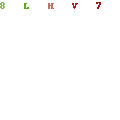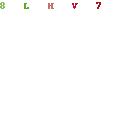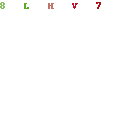Why are most of the Muslims fundamentalists and terrorists?
Answer:
This question is often hurled at Muslims, either directly or indirectly, during any discussion on religion or world affairs. Muslim stereotypes are perpetuated in every form of the media accompanied by gross misinformation about Islam and Muslims. In fact, such misinformation and false propaganda often leads to discrimination and acts of violence against Muslims. A case in point is the anti-Muslim campaign in the American media following the Oklahoma bomb blast, where the press was quick to declare a ‘Middle Eastern conspiracy’ behind the attack. The culprit was later identified as a soldier from the American Armed Forces.
Let us analyze this allegation of ‘fundamentalism’ and ‘terrorism’:
1. Definition of the word ‘fundamentalist’
A fundamentalist is a person who follows and adheres to the fundamentals of the doctrine or theory he is following. For a person to be a good doctor, he should know, follow, and practise the fundamentals of medicine. In other words, he should be a fundamentalist in the field of medicine. For a person to be a good mathematician, he should know, follow and practise the fundamentals of mathematics. He should be a fundamentalist in the field of mathematics. For a person to be a good scientist, he should know, follow and practise the fundamentals of science. He should be a fundamentalist in the field of science.
2. Not all ‘fundamentalists’ are the same
One cannot paint all fundamentalists with the same brush. One cannot categorize all fundamentalists as either good or bad. Such a categorization of any fund amentalist will depend upon the field or activity in which he is a fundamentalist. A fundamentalist robber or thief causes harm to society and is therefore undesirable. A fundamentalist doctor, on the other hand, benefits society and earns much respect.
3. I am proud to be a Muslim fundamentalist
I am a fundamentalist Muslim who, by the grace of Allah, knows, follows and strives to practise the fundamentals of Islam. A true Muslim does not shy away from being a fundamentalist. I am proud to be a fundamentalist Muslim because, I know that the fundamentals of Islam are beneficial to humanity and the whole world. There is not a single fundamental of Islam that causes harm or is against the interests of the human race as a whole. Many people harbour misconceptions about Islam and consider several teachings of Islam to be unfair or improper. This is due to insufficient and incorrect knowledge of Islam. If one critically analyzes the teachings of Islam with an open mind, one cannot escape the fact that Islam is full of benefits both at the individual and collective levels.
4. Dictionary meaning of the word ‘fundamentalist’
According to Webster’s dictionary ‘fundamentalism’ was a movement in American Protestanism that arose in the earlier part of the 20th century. It was a reaction to modernism, and stressed the infallibility of the Bible, not only in matters of faith and morals but also as a literal historical record. It stressed on belief in the Bible as the literal word of God. Thus fundamentalism was a word initially used for a group of Christians who believed that the Bible was the verbatim word of God without any errors and mistakes.
According to the Oxford dictionary ‘fundamentalism’ means ‘strict maintenance of ancient or fundamental doctrines of any religion, especially Islam’.
Today the moment a person uses the word fundamentalist he thinks of a Muslim who is a terrorist.
5. Every Muslim should be a terrorist
Every Muslim should be a terrorist. A terrorist is a person who causes terror. The moment a robber sees a policeman he is terrified. A policeman is a terrorist for the robber. Similarly every Muslim should be a terrorist for the antisocial elements of society, such as thieves, dacoits and rapists. Whenever such an anti-social element sees a Muslim, he should be terrified. It is true that the word ‘terrorist’ is generally used for a person who causes terror among the common people. But a true Muslim should only be a terrorist to selective people i.e. anti-social elements, and not to the common innocent people. In fact a Muslim should be a source of peace for innocent people.
6. Different labels given to the same individual for the same action, i.e. ‘terrorist’ and ‘patriot’
Before India achieved independence from British rule, some freedom fighters of India who did not subscribe to non-violence were labeled as terrorists by the British government. The same individuals have been lauded by Indians for the same activities and hailed as ‘patriots’. Thus two different labels have been given to the same people for the same set of actions. One is calling him a terrorist while the other is calling him a patriot. Those who believed that Britain had a right to rule over India called these people terrorists, while those who were of the view that Britain had no right to rule India called them patriots and freedom fighters.
It is therefore important that before a person is judged, he is given a fair hearing. Both sides of the argument should be heard, the situation should be analyzed, and the reason and the intention of the person should be taken into account, and then the person can be judged accordingly.
7. Islam means peace
Islam is derived from the word ‘salaam’ which means peace. It is a religion of peace whose fundamentals teach its followers to maintain and promote peace throughout the world.Thus every Muslim should be a fundamentalist i.e. he should follow the fundamentals of the Religion of Peace: Islam. He should be a terrorist only towards the antisocial elements in order to promote peace and justice in the society.









.jpg)








